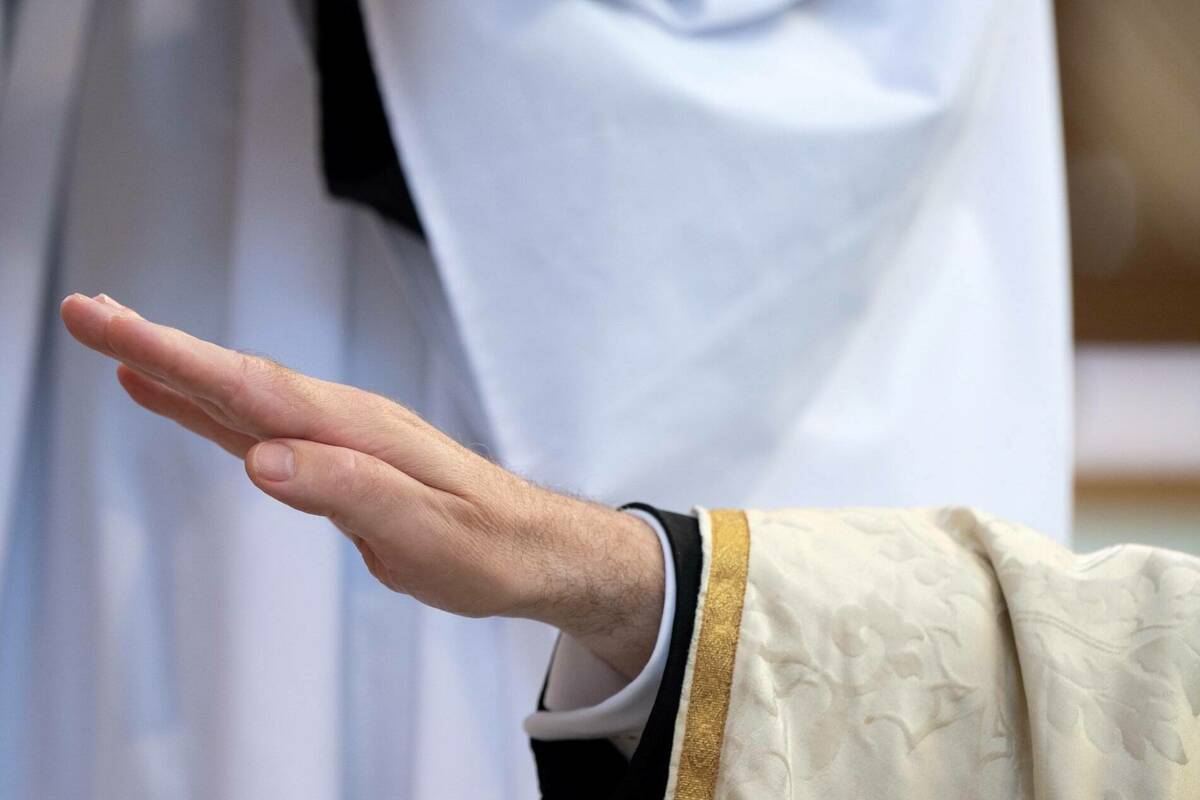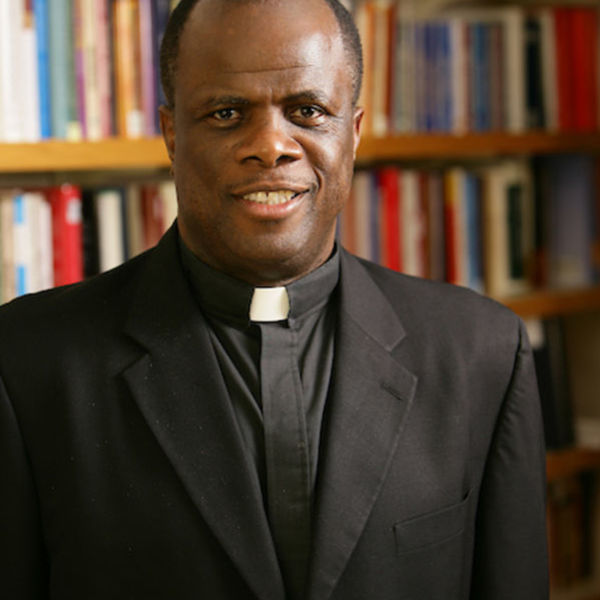Fiducia Supplicans (FS), the Declaration which was issued by the Dicastery for the Doctrine of the Faith (DDF) on December 18, 2023, has attracted a lot of attention for many important reasons. Foremost, this short text contains an extraordinarily rich theology of blessings like its predecessor, the Responsum, which was issued by the same dicastery in 2021[1] also on questions related to the blessing of same-sex couples. These two texts both provide a rich discussion on blessing in all its various aspects, and its meaning in various religious contexts, within and outside the liturgy. Even for this reason alone, FS deserves the attention it is getting.
The discussions on FS have focused primarily on section III, which speaks pointedly about blessings “for couples in irregular situations and for couples of the same sex” (§31). FS allows for the blessing of such couples in a form “not fixed ritually by ecclesiastical authorities to avoid confusion with the blessing proper to the sacrament of marriage.” The intention of such a blessing is not the legitimation of the status of those in same-sex unions. It is rather a prayer that whatever “is true, good, and humanly valid in their lives and their relationship be enriched, healed, and elevated by the presence of the Holy Spirit.” The blessing is furthermore a prayer that couples in the situation described here “may mature and grow in fidelity to the Gospel, that they may be freed from their imperfections and frailties, and that they may express themselves in the ever-increasing dimension of the divine love.”
Fiducia Supplicans leads us to what can be called a casuistry of blessings. In Catholic theology, casuistry is that part of moral theology that tries to apply moral principles to particular cases. In casuistry we are not dealing with abolition of rules but with the application of rules to particular cases and to individual circumstances. Although some people react negatively to the word casuistry as a dishonest and deceptive attempt at evading morally binding principles, this is only a caricature, even if there can be some truth to it. There is bad casuistry and there is good casuistry. At its best in the history of moral discourse in general and of Catholic moral discourse in particular, casuistry is a genuine attempt to find a way or ways to make rules take on responsive and responsible existence, a way to bridge the gap between concrete action and abstract norm. Thus, casuistry has two functions: (1) to illustrate principles and (2) to bring those principles to serve human needs.
FS is thoroughly a casuistic exercise. First, there is the fact of marriage as a union between a man and a woman. This text very clearly insists that this is the norm that must be strictly adhered to. The perennial doctrine of the Church is that to speak of marriage is to talk of that “exclusive, stable, and indissoluble union between a man and a woman, naturally open to the generation of children” (§4). But there is also the fact that there are persons who for whatever reason do not live up to this ideal. These people, according to the text “do not claim to be righteous but . . . acknowledge themselves humbly to be sinners, like everyone else” (§32). When such persons who do not claim “a legitimation of their status “approach the Church for blessing, what should the Church do? Turn them away? The pope in this text says they should not be turned away. “God never turns away anyone who approaches him! Ultimately, a blessing offers people a means to increase their trust in God. The request for a blessing, thus, expresses and nurtures openness to the transcendence, mercy, and closeness to God in a thousand concrete circumstances of life, which is no small thing in our world. It is a seed of the Holy Spirit that must be nurtured, not hindered” (§33).
Here then comes the dilemma for every casuist: how to uphold absolute moral principles in the face of apparent inability by some people to live up to them for whatever reason. The danger, one which is also faced by the recent text from the Dicastery for the Doctrine of the Faith, is that one risks giving an answer which, on one hand, could be seen as having little regard for the principle in question or, on the other, appears to be callous and lacking in mercy and sympathy for those whose lifestyles go against what the Church teaches.
I worry that FS runs the risk of doing both. In §25 of the text we read the following assertion, which is unfortunate because it not only inflames passions on both sides of the debate but also gives the impression that the text, for all its reassurances regarding the uniqueness of the sacrament of marriage, is in fact antinomian in the end:
The Church must shy away from resting its pastoral praxis on the fixed nature of certain doctrinal or disciplinary schemes, especially when they lead to “a narcissistic and authoritarian elitism, whereby instead of evangelizing, one analyses and classifies others, and instead of opening the door to grace, one exhausts his or her energies in inspecting and verifying” (§25).
This passage includes a quote from a document[2] on popular piety and liturgy, which was issued in another context and for another reason. Used in the context of the discussion in FS, it conveys the impression of a disdain for anyone who dares to suggest that there is a problem with the issue of blessings for same-sex couples. Anyone who finds fault with the ruling of the DDF on this issue is therefore “narcissistic,” “authoritarian,” and “elitist.” But is that really true? The drafters of this text have not done justice to Pope Francis, who has always indicated his approval of healthy theological disputations as an important way to get to the truth of the gospel. Does this same verdict also apply to the 2021 Responsum from the same DDF, which, in direct opposition to the Fiducia Supplicans of 2023 from the same dicastery, asserts that “it is not licit to impart a blessing on relationships, even stable, that involve sexual activity outside of marriage (i.e., outside the indissoluble union of man and woman open in itself to the transmission of life) as is the case of the unions between persons of the same sex.” Is this statement, which also claims to have been issued after consultation with the Holy Father, also elitist, narcissistic, and authoritarian?
As a casuistic text, FS starts with the important recognition that we are all sinners, and that God desires the salvation of all. As many of the Fathers of the Church would say, the reason God entered our history is to show mercy. The Lord himself stated that he came not for the righteous but for sinners. An important question then is whether same-sex marriage is viewed by those in it as part of our sinful condition. FS considers same-sex unions as “irregular.” Do those in such relationships consider themselves to be in sinful or irregular unions? The reality seems to be that same-sex marriage is today considered by most people involved as an equally valid form of marriage, a situation at par with any heterosexual marriage, hence the talk of and the desire for “marriage equality” within those circles.
A second noteworthy point is that for all the casuistry of blessings contained in FS it must be clear that no priest worth his ordination would ever turn away people who come for blessings as individuals or as groups of people or even simply as sinners on any grounds, including those living in a same-sex relationship. The problem with the blessing that same-sex couples seek is precisely because they seek this blessing as a couple, romantically linked, committed to each other as in any other relationship among married heterosexual couples. If such people ever ask for a blessing from a priest they are most likely simply seeking validation for their relationship. Here we can see the limit of casuistry on two important grounds.
First, as the 2021 Responsum from the same dicastery puts it, God “does not and cannot bless sin: he blesses sinful man, so that he may recognize that he is part of his plan of love and allow himself to be changed by him.”[3] If those who presents themselves as a couple for blessing are truly Christian, they should already know this truth of their faith. As FS rightly insists, “When people ask for a blessing, an exhaustive moral analysis should not be placed as a precondition for conferring it. For those who seek a blessing should not be required to have prior moral perfection” (§25). However, when such a couple is openly known to be living together as a same-sex couple, should the priest, even in private and a non-liturgical setting “bless” them as a couple, knowing that they are not seeking for guidance to get out of their relationship but for God to help them lead a happy and fulfilled life as a couple? Would the priest, who is aware of all this, not be cooperating in sin if he goes on to give the blessing the couple seeks, precisely as a couple? These are not trivial questions.
The other aspect to this casuistry is therefore also the question of scandal. In Catholic moral theology, this refers to two things—being an obstacle to faith and leading weaker minds to sin. St. Paul was faced in his time with several issues that required casuistic reasoning. One issue was about the upkeep of the Apostles. The other was whether to eat food sacrificed to idols. In the former case, Paul sometimes accepted gifts for his upkeep. At other times he refused such gifts and insisted on fending for himself (cf. Phil. 4.10–20; 1 Thess. 2:5–9; 2 Thess 3:7–9; 1 Cor 9:4–18; 2 Cor 11: 7–10; 12:13–18; Acts 18:3, Acts 20:31–35, etc. Whatever the case, he did not want to be a scandal to anyone. As regards food sacrificed to idols, Yves Congar points out four steps in Paul’s response to this dilemma.[4] In the first place, Paul denies that idols exist, for there is only one God, the Father of our Lord Jesus Christ (1 Cor 8. 1–6). Since idols do not exist, foods sacrificed to them are of no other value except as food. Therefore, it is incompatible with being a Christian to eat these foods sacrificed to idols as an act of religion. To eat them in this way was a tacit admission of the existence of these idols, an act which Christians should not indulge in, for as he puts it to the Corinthians, “You cannot share the table of the Lord and the cup of demons” (1 Cor 10:21).
More important to the issue on hand here in FS is the fourth point that St. Paul makes in the discussion on whether to eat meat sacrificed to idols or not. Paul insists that it is not enough to know and profess that there is only one God and that idols do not exist. This is not sufficient grounds to base one’s decision. There are people who have not yet come to the awareness that there are no idols and who therefore cannot involve themselves in the fine distinctions entailed in this discussion. Such people might eat such foods following the example of those with strong faith and eventually behaving through their scrupulosity as though they had actually sacrificed to idols and as though these idols were real. Paul concludes that we should never use our knowledge for the ruin “of someone weak, of a brother for whom Christ died” (1 Cor 8:11). At its best, Catholic casuistry has always taken seriously the issue of leading people of weaker faith astray. This matter must be taken seriously on this issue.
The drafters of FS may have thought they were engaged in a worthy pastoral exercise meant to include everyone. What seems to be happening so far is that this issue is causing scandal and threatening to ruin the faith of many for whom Christ died. Whether it was the right thing to do at this time is yet to be seen.
[1] Responsum of the Congregation for the Doctrine of the Faith to a dubium regarding the blessing of the Unions of persons of the same sex, 15.03.2021.
[2] Directory on Popular Piety and the Liturgy (9 April 2002).
[4] See Yves Congar, Priest and Layman, trans T.F. Scott (London: Dalton, Longman and Todd, 1962), 49–74.


